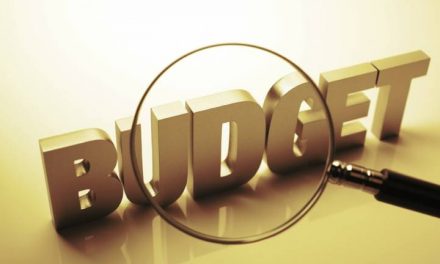
Oil flows but not in Africa’s direction
What logical reason is there that prevents Angola from supplying the entire southern Africa with crude as well as some refined products? And what benefit should Angola’s oil bring to the Southern African Development Community if the region is serious about co-operation, integration, intra-member trade, infrastructure development and all the other blah blah blahs we are constantly fed when politicians don’t have any other drivel to dish up.
Angola’s oil has been a bee in my bonnet for a long time. Here the Southern African Development Community sits with a major oil producer as one of its members, yet outside Angola there is no discernible benefit from having oil resources, sufficient to keep the whole block running.
It is always a source of envy and frustration to hear how ultra-cheap petrol and diesel are in Angola. With this arrangement I have no problem. Essentially, it translates into a direct benefit for the Angolan population, that is, if you can afford a car. But this discrepancy between fuel prices in Angola and the rest of SADC, lays bare the fundamental flaws in the so-called treaties that underpin the existence and the intentions of the group of states that call themselves the Southern African Development Community, or SADC (Sadek) for short.
The oil reserves in Angola are what drove most of the protracted civil war that started in 1974. Every political group vying for the popular vote knew that once they controlled the oil fields, their road would be paved with petro-dollars. And this is exactly how it panned out with the MPLA regime whose tenure and brutality was guaranteed by oil. Actually the MPLA regime has never controlled the oil reserves, it only benefitted from the royalties paid by American oil companies, to keep its mouth shut, and to ensure that no political threat whatsoever arises in or against Cabinda, the small enclave where all the Angolan oil is concentrated offshore.
But the situation have changed in Angola and there is at least some semblance of an infant democratic system struggling to find universal approval among the government party members. Whereas the MPLA regime was completely communist during and immediately after the war, it seemingly enjoys a sufficiently guaranteed supply of petro-collars to hold an election every two decades or so. Yet, overall, it ranks as the most corrupt, most backward country in SADC, even beating the DRC regarding the absence of social investment and overall development.
But because it is perceived to be powerful, and flush with cash, its untested government does not find any opposition from other SADC members on corruption, human rights abuse, and a severe lack of social investment.
I yet have to hear the softest form of criticism against the Angolan regime from any of the other SADC members. Compare this to SADC Heads of State meetings that venture an opinion on Zimbabwe, Swaziland, Madagascar and even Malawi, and dissolve a crucial institution like the SADC Tribunal between coffee and biscuits on a sunny afternoon. But on Angola and its government, never a word.
If this talk about integrating SADC is serious, why do not our leaders start the arduous work of negotiating a deal with the Angolan oil companies to supply a set percentage of production to other SADC member states. At this same meeting, the energy ministers can then start comparing retail prices, and design mechanism to rid us of the bouquet of taxes and levies that make up the pump price. I was astonished when I saw for the first time, a breakdown of the pump prices of fuel. This was almost two decades ago and it was painful to learn that almost 70% of the pump price is made up of a host of taxes and levies, all of which help various governments to fund all sorts of projects, none of which included improvement of the energy infrastructure, or the profits to the oil companies, both upstream and downstream. In other words, consumers across at least eight of the southern SADC members are penalised and have to pay to maintain an inefficient energy supply chain.
The cost of energy is arguably one of the most important factors either boosting or limiting economic growth and general development. Both petrol and diesel can be marketed at much cheaper rates, but then we need a supplier (Angola) to send that oil into the market at a negotiated cost, and we need SADC governments to stop slapping on punitive taxes, so that we can have more affordable energy. However, I doubt strongly that this will ever happen. It is so much easier to play the fool than to make a concerted effort to establish a crude channel to make some of Angola’s oil benefit Africa.









































